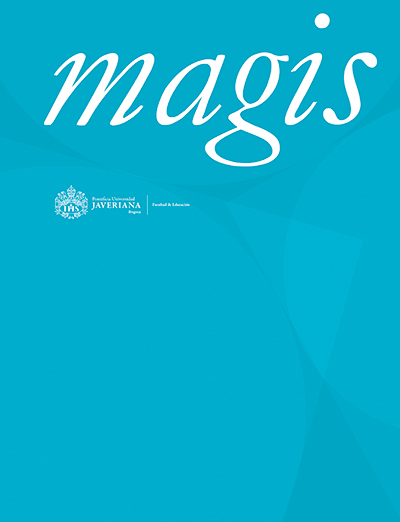Abstract
This article explores the concept of learning as a space of exchange and connection between signs, events and bodies, inspired by Gilles Deleuze’s philosophy of difference. This qualitative methodology is based on the rhizome, with, amongst others, its characteristics or principles of heterogeneity, multiplicity and a-signification. It allows a productive conversation with studies of learning environments and sense productions through images and sounds from cinema media, such as the swimmer and swimming. The focus of this article is on learning, its environment and its role in the relationship between mind and world, pointing to an alternative to the representational perspective.
Bellour, R. & Hardyck, A. (2012). Raymond Bellour: between-the-Images. Zurich: JRP/Ringier.
Bennett, J. (2010). Vibrant Matter: A Political Ecology of Things. Duke and London: Duke University Press.
Bhaskar, R. (1998). General Introduction. In M. Archer, R. Bhaskar, A. Collier, T. Lawson & A. Norrie (eds.). Critical Realism: Essential Readings, ix-xxiv, London: Routledge.
Bogue, R. (2008). Search, Swim and See. In I. Semetsky (ed.). Nomadic Education - Variations on a Theme by Deleuze and Guattari, 1-16. Rotterdam: Sense Publishers.
Brandom, R. (1994). Making it Explicit: Reasoning, Representing, and Discursive Commitment. Cambridge, Massachusetts: Harvard University Press.
Brandom, R. (2000). Articulating Reasons: An Introduction to Inferentialism. Cambridge, Massachusetts: Harvard University Press.
Brandom, R. (2004). The Pragmatist Enlightenment (and its Problematic Semantics), European Journal of Philosophy 12(1), 1-16. https://doi.org/10.1111/j.0966-8373.2004.00196.x
Buchanan, I. M. (2017). Assemblage Theory, or, the Future of an Illusion. Deleuze Studies, 11 (3), 457-474. http://dx.doi.org/10.3366/dls.2017.0276
Colman, F. J. (2010). Rhizome. In A. Parr (eds.). The Deleuze Dictionary, 232-235. Edinburgh: Edinburgh University Press.
Deleuze, G. (1968). Différence et repetition (Paris, Presses Universitaires de France, PUF). Difference and Repetition. Paul Patton (transl.). New York: Columbia University Press.
Deleuze, G. (1993). The Fold: Leibniz and the Baroque. Tom Conley (trans.). Minneapolis: University of Minnesota Press.
Deleuze, G. (2006). Nietzsche and Philosophy. Michael Hardt (trans.). New York: Columbia University Press, European Perspectives Series.
Deleuze, G. & Guattari, F. (1980). Mille Plateaux. (Paris: Minuit). A Thousand Plateaus, by Brian Massumi (trans.). Minneapolis: University of Minnesota Press.
Fodor, J. & Lepore, E. (2007). Brandom Beleaguered. Philosophy and Phenomenological Research, 74 (3), 677-691. https://doi.org/10.1111/j.1933-1592.2007.00045.x
Kawamura, Y. (2005). Lethe. Available at: https://www.youtube.com/watch?v=nTnEsNL7Y48
Lambert, G. (2012). In Search of a New Image of Thought: Gilles Deleuze and Philosophical Expressionism. Minneapolis: University of Minnesota Press.
MacLure, M. (2013). Researching without Representation? Language and Materiality in Post-Qualitative Methodology. International Journal of Qualitative Studies in Education, 26 (6), 658-667. https://doi.org/10.1080/09518398.2013.788755
Masny, D. (2013). Rhizoanalytic Pathways in Qualitative Research: Problematizing the Qualitative. Qualitative Inquiry, 19 (5), 339-348. https://doi.org/10.1177/1077800413479559
Masny, D. (2016). Problematizing Qualitative Research: Reading a Data Assemblage With Rhizoanalysis. Qualitative Inquiry, 22 (8), 666-675. https://doi.org/10.1177/1532708616636744
Mazière, M. (1987). Swimmer. United Kingdom, France. Available at: https://www.youtube.com/watch?v=yeqpjZnynoo
Rancière, J. (2013). Remarks by Way of a Postface. In P. Bowman (ed.). Rancière and Film, 185-193. Edinburgh: Edinburgh University Press.
Scott, D. (2011). Education, Epistemology and Critical Realism. London, New York: Routledge.
Sellars, W. (1997). Empiricism and the Philosophy of Mind. Cambridge, Massachusetts: Harvard University Press.
Semetsky, I. & Delpech-Ramey, J. A. (2012). Jung’s Psychology and Deleuze’s Philosophy: The Unconscious in Learning. Educational Philosophy and Theory, 44 (1), 69-81. https://doi.org/10.1111/j.1469-5812.2010.00670.x
Standish, P. (2016). The Disenchantment of Education and the Re-enchantment of the World. Journal of Philosophy of Education, 50 (1), 98-116. https://doi.org/10.1111/1467-9752.12176
Taylor, C. (1985). Human Agency and Language: Philosophical Papers 1, Chapter 1: What is Human Agency? and Chapter 3: Hegel’s Philosophy of Mind. Cambridge: Cambridge University Press.
Taylor, C. (2011). Dilemmas and Connections. Harvard, Massachusetts: Harvard University Press.
Magis, International Journal of Research in Education by Pontificia Universidad Javeriana is registered under a Creative Commons Attribution 4.0 International Public License. Thus, this work may be reproduced, distributed, and publicly shared in digital format, as long as the names of the authors and Pontificia Universidad Javeriana are acknowledged. Others are allowed to quote, adapt, transform, auto-archive, republish, and create based on this material, for any purpose (even commercial ones), provided the authorship is duly acknowledged, a link to the original work is provided, and it is specified if changes have behttps://creativecommons.org/licenses/by/4.0/en made. Pontificia Universidad Javeriana does not hold the rights of published works and the authors are solely responsible for the contents of their works; they keep the moral, intellectual, privacy, and publicity rights.
Approving the intervention of the work (review, copy-editing, translation, layout) and the following outreach, are granted through an use license and not through an assignment of rights. This means the journal and Pontificia Universidad Javeriana cannot be held responsible for any ethical malpractice by the authors. As a consequence of the protection granted by the use license, the journal is not required to publish recantations or modify information already published, unless the errata stems from the editorial management process. Publishing contents in this journal does not generate royalties for contributors.
Creative Commons Attribution 4.0 International Public License



